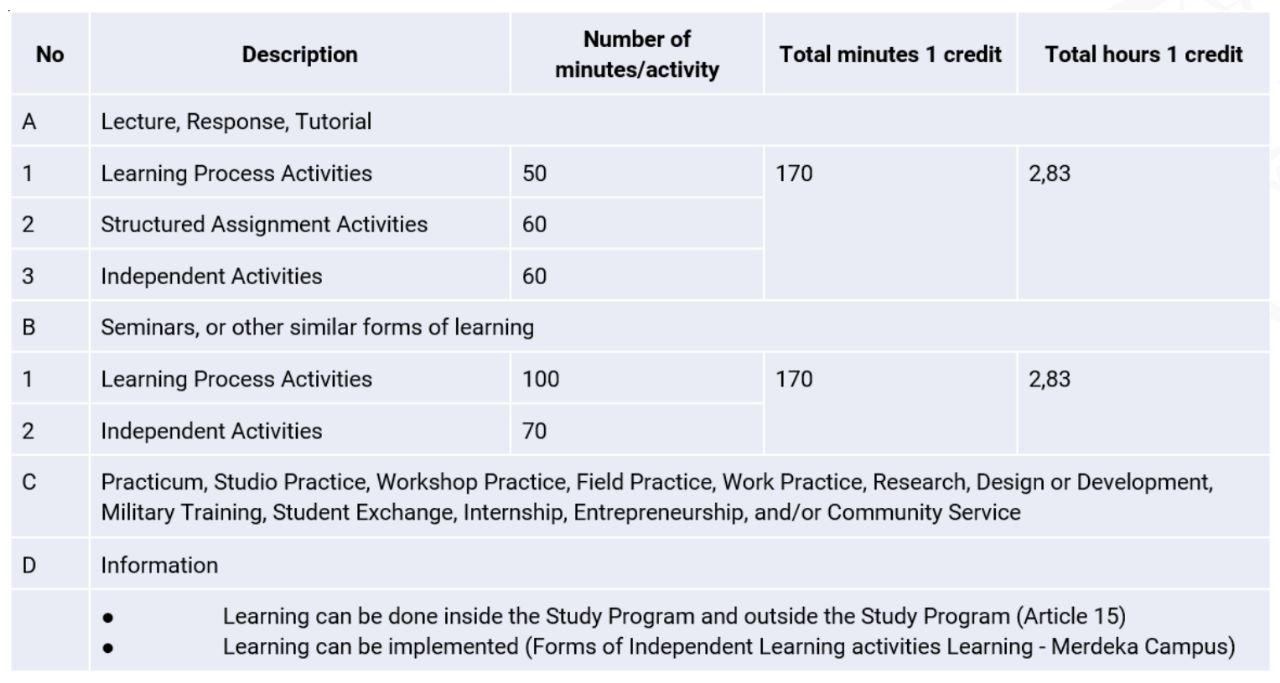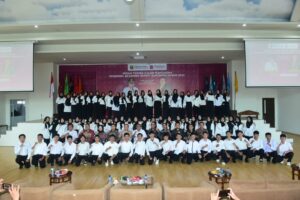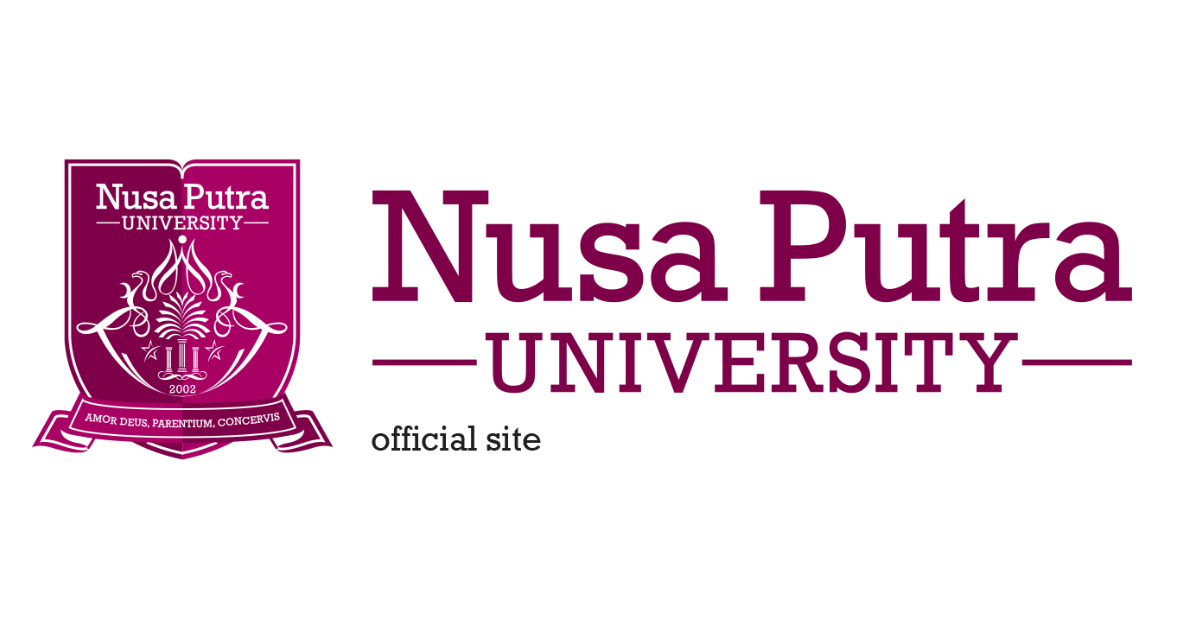- ABOUTAbout UsCollaborationInternational ProgramStudy Indonesia Program (SIP)Abroad Internship Program (AIP)Summer Course ProgramDouble DegreeEnrichment ProgramInternshipHumanitarian ProjectIndependent Study of Project
- ACADEMICS
- RESEARCH

- Information
- AdmissionsUndergraduate ProgramUndergradute SchoolarshipPostgraduate ProgramPostgraduate Schoolarship
EN
Home » Academic » Faculty of Business and Humanities (FBH) » Accounting
Accounting
- Overview
- Vision & Mission
- Career
- Curriculum
- News
Overview
Along with the development of science and technology, nowadays the field of Accounting has become very important to be mastered as the basis and central for the development of other related branches of science. Thus, the need for accountants worldwide is very high both in companies, industry and government. The Bachelor of Accounting Study Program at Nusa Putra University was established in 2018 and is the only study program in Sukabumi Indonesia region that provides higher education in the field of Accounting including finance, taxation, and auditing. Determination of the profile of graduates of the Accounting Study Program at the University of Nusa Putra based on needs analysis, studies of science and technology and adopting and referring to the Indonesian National Qualifications Framework (KKNI), the Professional Association of Indonesian Institute of Accountants (Institute of Indonesia Chartered Accountants) and the Competency Standards of Professional Accountants that has been set by the International Federation of Accountants (IFAC), namely the International Education Standard (IES).
The Accounting Study Program at the University of Nusa Putra determines the Intended Learning Outcomes (ICLO) based on the determination of the graduate profile based on an analysis of the curriculum foundation (philosophical, sociological, psychological, historical, judicial) through a preparation process that is in accordance with theory, research and application in the accounting field. . This curriculum analysis was developed in accordance with the field of Accounting competence which refers to: Competency-based curriculum (KBK) Kepmendiknas no. 045/U/2002; Higher Education Curriculum (KPT) and the Indonesian National Qualifications Framework (KKNI) Law no. 12 of 2012 and Presidential Decree No. 8 of 2012; National Standards for Higher Education (SN DIKTI) Ministerial Regulation no. 44 of 2015; Permendikbud No. 3 of 2020 concerning National Higher Education Standards (SN Dikti); Permendikbud No. 5 of 2020 concerning Accreditation of Study Programs and Universities, as well as the curriculum of the Accounting Study Program is an adaptation of a professional organization called the Indonesian Accountants Association (IAI) and the Indonesian Bachelor of Economics Association (ISEI). In preparing the curriculum, it involves all stakeholders, both from lecturers, graduate users and related experts.
Vision
The vision of the Accounting study program at Nusa Putra University is: “Becoming a Bachelor of Science who has a professional attitude in the fields of Finance, Taxation and Auditing that has Innovative, Religious and Globally Competitive Characteristics by 2043.”
Mission
- Developing Professional Competencies
Providing quality higher education to develop professional competencies in the fields of finance, taxation and auditing. This involves a relevant curriculum, quality teaching, and extensive practice opportunities. Examples that have been implemented by study programs include A&B brevet training, finance, audits, project-based assignments, workshops and internships. - Developing Global Competitive Capabilities
Ensure that graduates are ready to compete in the global market by understanding international standards, foreign languages and having sufficient international experience, such as international internships, student exchanges, international conferences and seminars. - Increasing Innovation in Teaching and Learning
Implement innovative teaching methods, advanced technology, and a curriculum that is always updated to reflect the latest developments in the fields of finance, taxation, and auditing. Examples that have been implemented are Collaborative Teaching with Practitioners, Curriculum Content Development, project-based assignments and Discussion-Based Classes. - Research Development and Scientific Contribution
Encourage scientific research and contribute to understanding and development in the fields of finance, taxation and auditing. Engage students and staff in relevant research. Examples include study programs encouraging publications and conferences, supporting student research. - Social Engagement and Community Service
Encourage students to be involved in relevant social activities and community services, so that they can become contributing citizens in society. Examples include Community Service and Tax Consultation Services or through a tax center.
Career Prospect of Graduates
After completing the Accounting Bachelor Program, graduates can have a career as:
- Public Accountant
- Financial Accountant Auditor
- Accounting System Auditor
- Financial Analyst
- Capital Market Analyst
| Semester | Kode | Nama Mata Kuliah (in) | Course Name (Eng) | SKS | ECTS | Total | |
| SKS | ECTS | ||||||
| WN10002 | Pendidikan Kewarganegaraan | Civic Education | 2 | 3,2 | |||
| WU11001 | Bahasa Inggris Akademik | English for Academics | 2 | 3,2 | |||
| AK11001 | Pengantar Manajemen | Introduction to Management | 2 | 3,2 | |||
| AK11002 | Pengantar Perpajakan | Introduction to Taxation | 3 | 4,8 | |||
| 1 | AK11003 | Pengantar Akuntansi | Introduction to Accounting | 3 | 4,8 | 19 | 30,4 |
| AK11004 | Teori Ekonomi | Economic Theory | 2 | 3,2 | |||
| AK11005 | Matematika Ekonomi dan Bisnis | Mathematics for Economicsand Business | 2 | 3,2 | |||
| AK11006 | Bisnis Digital | Digital Business | 3 | 4,8 | |||
| WN10001 | Pendidikan Pancasila | Pancasila Education | 2 | 3,2 | |||
| WU12002 | Bahasa Inggris Profesi | English for Profession | 2 | 3,2 | |||
| WU12003 | Kenusaputraan | Kenusaputraan | 1 | 1,6 | |||
| AK12007 | Akuntansi Perpajakan | Tax Accounting | 3 | 4,8 | |||
| 2 | AK12008 | Akuntansi Keuangan | Financial Accounting | 3 | 4,8 | 19 | 30,4 |
| AK12009 | Akuntansi Biaya | Cost accounting | 3 | 4,8 | |||
| AK12010 | Statistika Bisnis | Statistics for Business | 3 | 4,8 | |||
| AK12011 | Bank dan Lembaga Keuangan Non-Bank | Bank and Non-Bank Financial Institutions | 2 | 3,2 | |||
| WN20004 | Agama dan Etika | Religion and Ethics | 2 | 3,2 | |||
| AK21012 | Akuntansi Manajemen | Management Accounting | 3 | 4,8 | |||
| AK21013 | Akuntansi Keuangan Komprehensif | Comprehensive Financial Accounting | 3 | 4,8 | |||
| AK21014 | Manajemen Keuangan | Financial management | 2 | 3,2 | |||
| 3 | AK21015 | Pengauditan | Auditing | 3 | 4,8 | 21 | 33,6 |
| AK21016 | Sistem Informasi Akuntansi | Accounting InformationSystem | 2 | 3,2 | |||
| AK21017 | Praktikum Perpajakan | Taxation Practice | 2 | 3,2 | |||
| AK21018 | Hukum Bisnis | Business Law | 2 | 3,2 | |||
| AK21019 | Sistem Informasi Manajemen | Management Information S | 2 | 3,2 | |||
| WN20003 | Bahasa Indonesia dan Budaya | Indonesian Language andCulture | 2 | 3,2 | |||
| AK22020 | Audit Komprehensive | Comprehensive Audit | 3 | 4,8 | |||
| AK22021 | Analisa Laporan Keuangan | Financial statement Analysis | 2 | 3,2 | |||
| AK22022 | Akuntansi Sektor Publik | Public sector accounting | 3 | 4,8 | |||
| 4 | AK22023 | Akuntansi dan Pelaporan Perusahaan | Corporate Accounting and Reporting | 3 | 4,8 | 21 | 33,6 |
| AK22024 | Metodologi Penelitian | Research Methodology | 3 | 4,8 | |||
| AK22025 | Praktikum Akuntansi Keuangan | Practicum of FinancialAccounting | 2 | 3,2 | |||
| AK22026 | Teori Akuntansi | Accounting Theory | 3 | 4,8 | |||
| AK31027 | Akuntansi Keperilakuan | Behavioral Accounting | 2 | 3,2 | |||
| AK31028 | Teknologi Digital Akuntansi | Accounting DigitalTechnology | 3 | 4,8 | |||
| AK31029 | Manajemen Strategik | Strategic Management | 2 | 3,2 | |||
| AK31030 | Praktikum Audit | Auditing Practice | 2 | 3,2 | |||
| 5 | AK31031 | Investasi dan Pasar Modal | Investment and CapitalMarket | 3 | 4,8 | 24 | 38,4 |
| AK31032 | Etika Profesi | Professional Ethics | 2 | 3,2 | |||
| AK31033 | Akuntansi Keuangan Syariah | Sharia Financial Accounting | 2 | 3,2 | |||
| WU30004 | Praktek Kerja Lapangan (PKL) | Work in Practice | 2 | 3,2 | |||
| - | Mata Kuliah Pilihan Peminatan | Specialization Elective Course | 6 | 9,6 | |||
| 6 | FB32001 | Kewirausahaan | Entrepreneurship | 2 | 3,2 | ||
| WU30005 | Kuliah Kerja Nyata (KKN) | Community Service | 2 | 3,2 | 19-24 | 30,4-38,4 | |
| - | MK Pilihan I: MBKM/SCP /Pendalaman | Elective Course I: MBKM/ SCP /In-Depth | 15 | 24 | |||
| FB41002 | Filsafat Ilmu | Philosophy of Science | 2 | 3,2 | |||
| 7 | - | MK Pilihan II: MBKM/SCP /Pendalaman | Elective Course II: MBKM/ SCP /In-Depth | 15 | 24 | 17-23 | 27,2 -36,8 |
| 8 | AK40034 | Skripsi | Thesis | 6 | 9,6 | 6 | 9,6 |
| Jumlah | 146-156 | 233,6-249,6 | |||||
Conversion from SKS to European Credit Transfer System (ECTS)

1 credit is equivalent to 170 minutes or 2.83 hours. Each semester consists of 14 meetings. It means, a total of 39.62 hours per semester is obtained. The provision of 1 ECTS is equivalent to 25 hours. To get a Bachelor’s degree, a student must complete a minimum of 144 credits, that is equivalent to 228.21 ECTS. According to European Standard, 3 years lectures program is equivalent to 180 ECTS, and 4 years lecture program is equivalent to 240 ECTS. The number of lectures at FECD-UNSP is 228.21 ECTS, meaning that it meets European standards.
The Semester Credit Unit load for each course is determined in accordance with the learning process (lecture characteristics) carried out. One semester consists of 14 learning sessions/meetings (14 weeks) and two examinations; Mid-Semester Examination, and End-Semester Examination (UAS).
 News
News
- Bettilt girişte gambling etmek için en iyi bahis deneyimi – Bettilt ile kazanmanın keyfini çıkarın ve heyecanı yaşayın!
- Betmotion Celebra Fifteen Anos Com Novo Aplicativo E Prêmios
- 40 Süper Sıcak Oyna – Online En İyi Casino Oyunları
- Redmirepool.biz kaç oldu? En güncel bilgiler Sitenin Adı
- Ikimisli deneme bonuslu casino siteleri
- Timebet en güvenli ve kazançlı casino siteleri incelemeleri
- Xslot en çok para veren bahis siteleri
- Padişahbet en güvenilir bahis siteleri hangileri
- Betine en iyi bahis siteleri casino
- Ultrabet en çok bonus veren casino siteleri



